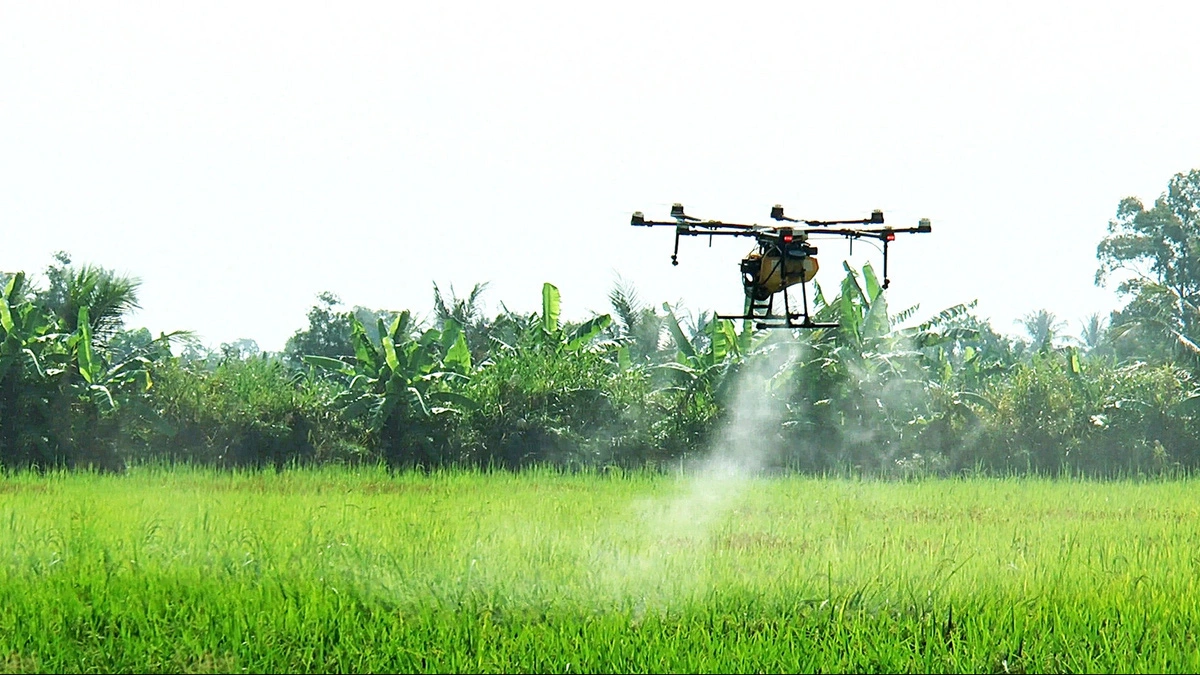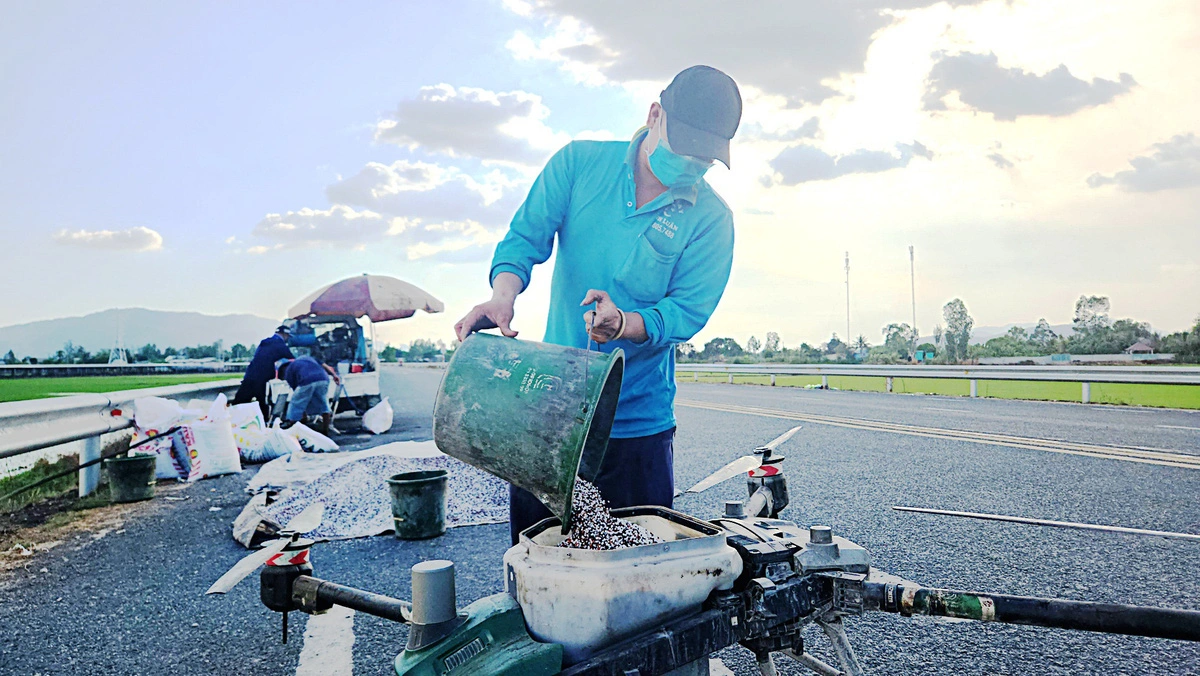In recent years, drones have steadily revolutionized farming practices in the Mekong Delta of Vietnam, taking over tasks like spraying pesticides, fertilizing crops, and even sowing rice seeds.
This high-tech trend is reshaping agriculture, cutting down on labor, time, and costs for farmers.
However, the rise of drones also brings safety concerns into sharp focus.
A recent tragedy in Hon Dat District, Kien Giang Province, where a man lost his life after being struck by a drone, has sparked alarm.
Authorities are now investigating the incident, giving rise to the urgent need for stricter safety measures in this rapidly evolving industry.
Drones help reduce costs
Quynh Van Hai, a farmer from Soc Trang Province, shared his enthusiasm for using drones to spray pesticides, especially during favorable weather conditions when crops typically require three to four treatments per season.
Hai explained that the number of sprays increases in less favorable climates, making drones a game-changer.
“Using drones minimizes exposure to harmful pesticides, which is essential for avoiding health issues while maintaining an efficient work schedule,” he said.
With low rental fees and minimal preparation -- farmers only need to supply the pesticides -- Hai finds the technology both accessible and effective.
“Every time I see drones flying over my rice field, spraying pesticides, I feel truly happy,” he said, noting that the drones work faster and more efficiently, leading to improved rice yields.
Thang, a drone owner in Soc Trang Province, shared that he had invested VND500 million (US$19,670) in the drone and had offered pesticide spraying service for four years.
The number of farmers using the service was modest in the initial period. However, the device has been rented daily over the past two years.
Thang has to hire two people to operate the drone.
He said the drone operation is simple, claiming that the incident in Kien Giang Province was rare and unexpected.
Using drones in agricultural production has helped farmers save 20 percent of pesticides and fertilizer and reduce water and manpower costs.
Rushing to buy drones
Truong Trieu Phu, a resident of An Giang Province, said that he owns six drones. He is the first person in An Giang to use drones that offer pesticide and fertilizer spraying as well as rice sowing services.
At the end of 2019, he bought two drones at VND500-600 million ($19,670-23,610) each.
As his business thrived, he established a group of drone operators and purchased 10 additional devices.
However, as more local residents invested in drones to provide similar services, Phu had to lower his service fee from VND180,000 ($7) to VND120,000 ($4.7) per hectare, leading to a drop in earnings for drone operators.
He said that a single drone can generate up to VND90 million ($3,539) per month if it covers 500 hectares of rice daily.
After deducting expenses, drone owners typically take home around VND60 million ($2,362) per month.
Meanwhile, drone operators, who handle the equipment, now earn between VND6–7 million ($236–275) monthly -- down from over VND10 million ($394) in the past, reflecting the impact of increased competition.
|
|
| An man puts fertilizer into a drone next to a paddy field in Tri Ton District, An Giang Province, southern Vietnam. Photo: Buu Dau / Tuoi Tre |
Operating drones safely
Phu’s drone operator team has connected with drone companies to offer training courses for residents in An Giang Province.
Each drone will cover a hectare of rice in 10-15 minutes. However, some people want to reduce the time, which poses a high risk of accidents, Phu said.
He added that drones must be landed temporarily on rice fields, not on roads, to avoid power transmission lines. Farmers who want to rent drones have to prepare space for them to land on their rice fields.
While drone use is on the rise in the Mekong Delta, supervision has not been tight enough, according to Phu.
Nguyen Van Ut, a resident in Ca Mau Province, said he always pays attention to the surrounding space while operating a drone and arranged for another person to mount a guard that prevents people from approaching the device.
Le Phu Luan, also from Ca Mau, said that using drones to spray pesticides is convenient but also poses dangers. During these spraying sessions, he advised his family to stay indoors and avoid the area.
In the province, there are currently over 690 drones being used in agriculture.
A representative from the provincial agriculture extension center noted that drone importers must apply for six-month flying licenses from the Ministry of National Defense.
Like us on Facebook or follow us on Twitter to get the latest news about Vietnam!





















































